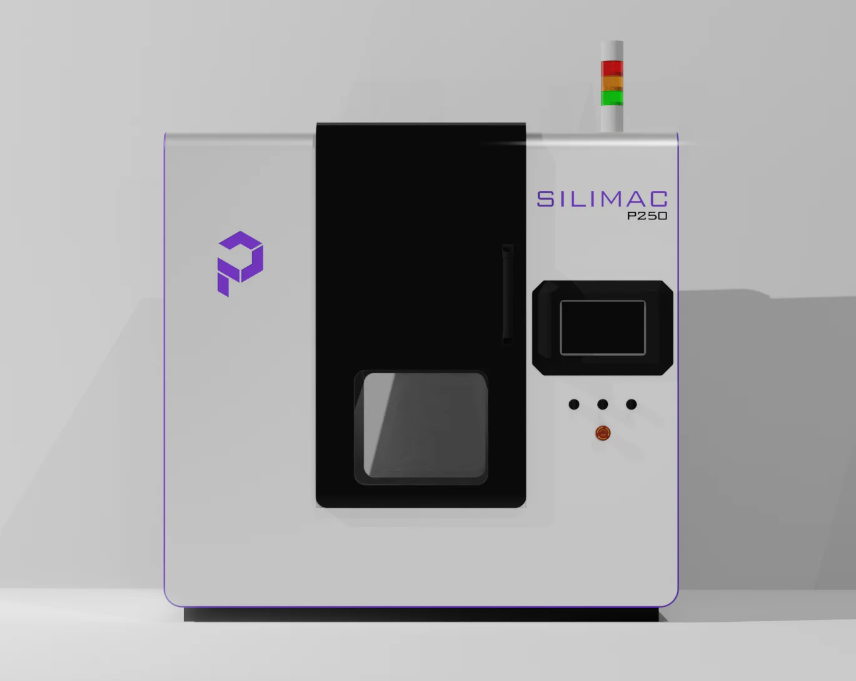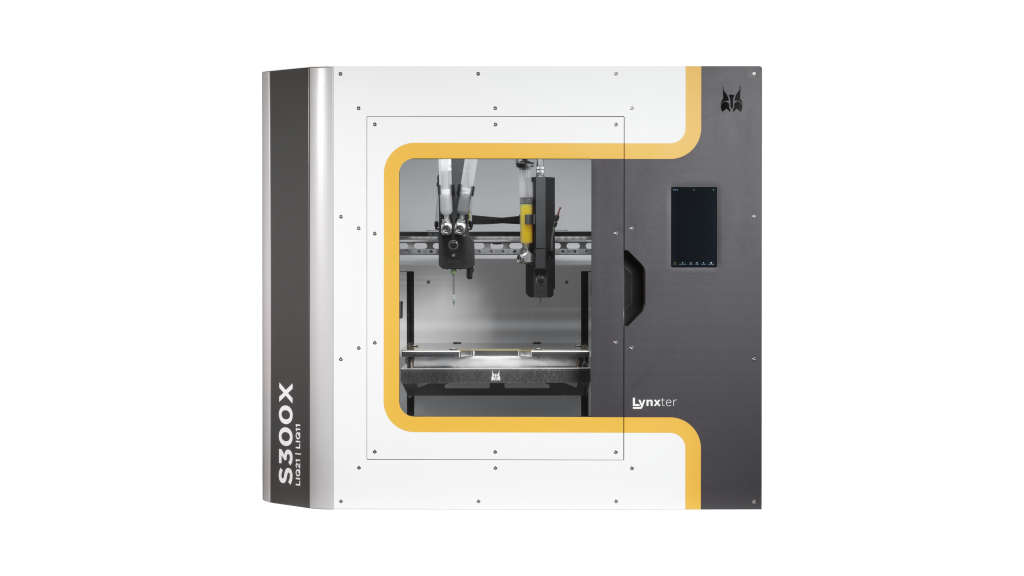Bengaluru-based start-up Prayasta has introduced the Silimac P250 3D printer specifically developed for ‘implant-grade’ elastomers (particularly silicone) for making personalized soft-tissue implants and prostheses.
It is an industrial-level machine that can run continuously and reliably for long periods, claims the company. Silimac-prepared 3D printed implants can be personalized not only in terms of shape, size, and contour, but also in weight, feel, touch, and stiffness, which the company describes as “a complete solution.”
“Silimac P250 the 3D printer has a meticulous design that maintains the sterility of the printing environment and the material producing best quality products suitable for medical applications and long-term implantations,” said Vikas Garg, CTO, and Co-Founder of Prayasta.

Features of Silimac P250 3D printer
Prayasta claims that the Silimac P250 3D printer can hold 14,000 ml of material in a single refill and describes it as a “truly production-ready machine”. The printer includes an in-built UV sterilization for the print chamber and a contamination-free support system that facilitates ideal hygiene for the 3D printing of implants.
The Silimac P250 3D printer, according to the company consists of real-time curing using IR laser & heaters resulting in faster printing. It also includes high resolution, is fully automated, and complies with industry 4.0 standards. The printer is compatible with all elastomeric, two-component, or similar materials.
In other news, Prayasta and the Indian Institute of Science (IISc) collaborated to accelerate the transition of personalized soft tissue implants from research to hospitals, to evaluate the 3D printability of novel materials in a fast-track mode, and to build the skills needed for market penetration of additive manufacturing.
Other companies using silicone 3D printers
Lattice Medical, is a French biomedical start-up launched in October 2017. Its proprietary 3D technology, developed in collaboration with CHU Lille-France, enables adipose tissue to regrow naturally. Lattice Medical has created the 100% resorbable implantable medical device Mattisse, which enables natural breast reconstruction in women who suffered breast cancer. Strengthening this expertise, Lattice Medical launched Lattice Services in 2020, bringing together all of its expertise in tissue regeneration and biomaterials for the design, manufacture, and supply of medical-grade, absorbable, and implantable, 3D filaments.
Furthermore, Lattice Medical won the Formnext Start-up Challenge 2022 Prize. Julien Payen, CEO, and co-founder of Lattice Medical said, “Lattice Medical is an implantable medical device company that develops and manufactures a breakthrough technology in the field of autologous adipose tissue reconstruction. With Lattice Services, we wanted to put the expertise we have acquired through Lattice Medical to extend the use of 3D Printing in the medical industry. Our medical filaments and 3D printing services aim to bring innovative solutions, rapid prototyping, and production for the future of medical devices. ”
Previously, French 3D printer manufacturer Lynxter, unveiled Lynxter S300X, a novel material extrusion (MEX/FFF) system, as a step toward scaling silicone 3D printing. The S300X is created to allow the reliable 3D printing of custom masking parts, strengthening the expertise acquired in the development of the Lynxter S600D. Because of its open philosophy, the unit can process industrial and medical-grade silicones and polyurethanes, making it suitable for producing dampers, seals, skin contact-ready orthoses, functionalized textiles, and surface treatment masking devices, says Lynxter.

Technical specifications and pricing
| Printing Technology | Implant-grade Elastomer Additive Manufacturing (iEAM) |
| Build Platform | 250 x 250 x 250 mm |
| Print Resolution | 50-micron |
| Material | NuSil® MED-4830, Implant Grade LSR | NuSil® MED-4820, Implant Grade LSR | Silopren* LSR 2650 |
| Bed Temperature | 150 °C |
| Display | 10.1″ Touch Screen Display |
Follow this link for all the Formnext 2022 news.
To stay up to date with the latest 3D printing news, don’t forget to subscribe to the 3D Printing Industry newsletter or follow us on Twitter, or like our page on Facebook.
While you’re here, why not subscribe to our Youtube channel? Featuring discussion, debriefs, video shorts, and webinar replays.
Are you looking for a job in the additive manufacturing industry? Visit 3D Printing Jobs for a selection of roles in the industry.
Feature image shows Silimac P250 implant grade 3D printer. Image via Prayasta.



